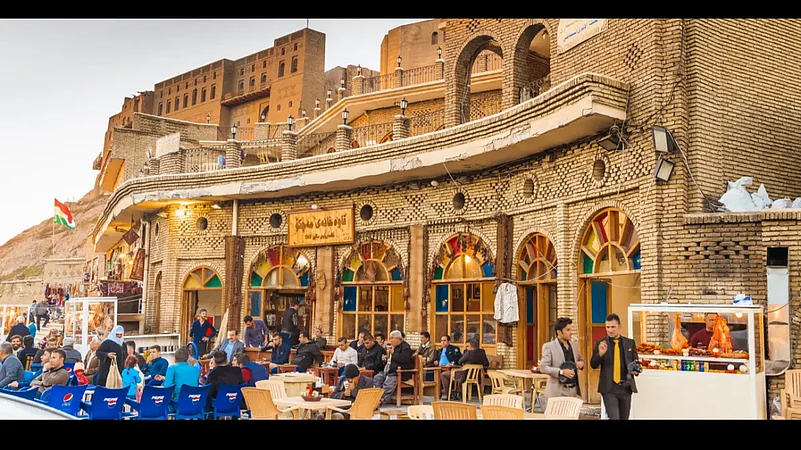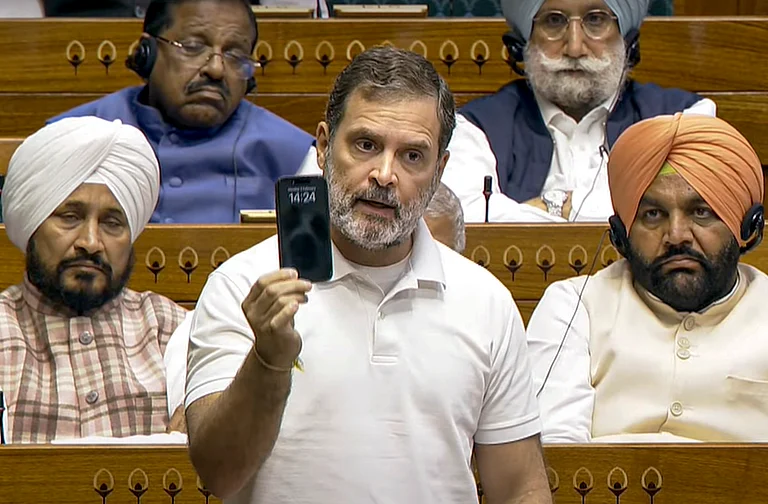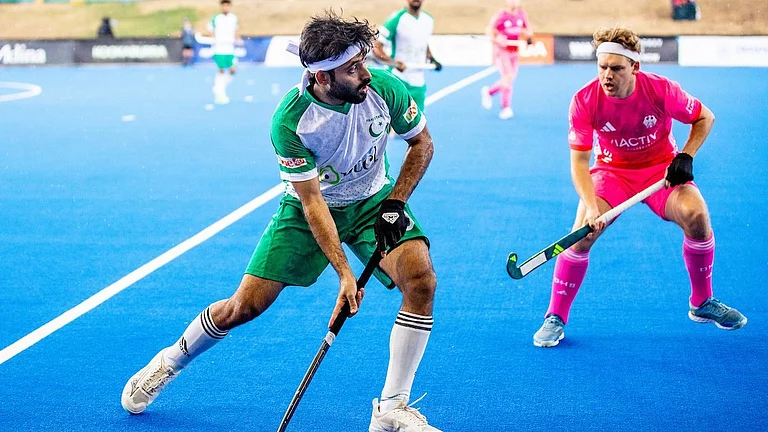Book Forum Café in Mosul
During the run-up to Iraq’s parliamentary elections this month, the Book Forum Café in Mosul (a city in northern Iran) became a favourite haunt of citizens where talks and discussions centered on political literacy and awareness were regularly organised, often led by the Khutwa Club, a debating society. While the bold step taken by the café astonished many in the outside world, those acquainted with the café culture in Iraq were not surprised. Because cafes in Iraq have been traditionally known as spaces that nurtured political and cultural discussions.
So if you are in Iraq anytime, take time out to check out the traditional tea rooms, coffee shops, or modern cafes in Baghdad and other cities. You will not only find them around business blocks or popular cultural centers but also tucked away among the streets and by-lanes. It is not unusual to find cafes named after cultural personalities such as Farid Al Atrash or Umm Kulthum.
Shahbandar Café, Baghdad
An institution by itself, this cafe, which completed its century in 2017, sits in the middle of Mutanabbi Street, famous for its bookstores. Coupled with the owner Al-Hajj Muhammad Al-Khashali banning all sorts of games, from cards to dominoes, way back in 1963, it has thrived as an intellectual hub. There is an old-world charm to the place, with hoary photographs lining the wall, wooden doors, wooden benches neatly arranged, and tea served in ‘istikan’. People of all ages frequent the café, some quietly reading, some people watching, some holding animated discussions, while waiters weave in and out, pouring the umpteenth cup of tea or carrying food trays. However, the café has also paid the price of being on Baghdad’s most happening street when it was hit badly in a 2007 bombing incident which led to many deaths including the owner's four sons, according to reports.
Umm Kulthum Café, Baghdad
Named after one of the greatest singers of Arab music, this café on Rasheed Street was opened in 1972. The walls are covered with photographs of the singer. Get ready to be drawn into some serious political discussions here as it is popular with intellectuals.
Alreef Café, Baghdad
The smell of strong coffee wafts down as you enter this popular book café in central Baghdad. Pick up a book from the floor-to-ceiling bookcases (a collaboration with Daraj Bookstore) and settle down in any of the comfortable sofas with your choice of coffee. Don’t forget to check out the digital drawings made by the owner herself. They also have a branch in Irbil.
Aqua Café, Baghdad
Patrons appreciate the variety of coffee, pastries, and desserts at this family-oriented modern café opened in 2017.
Elpida Café, Duhok
Located in the city of Duhok (in the Kurdistan region of northern Iraq), this café is known for its freshly roasted coffee, a selection of teas, flavoured lemonades, and desserts. They have both outdoor and indoor (non-smokers-only) seating. They have a bookshelf for those who want to enjoy some quiet reading time along with their coffee.
Machko, Irbil
Said to be Kurdistan’s most populated city, Irbil is known for its historical sites. It is also home to some of the old teahouses. Machko, over 80 years old, is one. According to old timers, this was once where storytellers would gather and sing traditional songs. Now a key center of political and cultural discussions. However, veterans rue that the café is losing its old character and giving way to modern vibes.
Chaikhana Shaab, Sulaymaniyah
Sulaymaniyah, in the eastern part of Iraq’s Kurdistan, was known as the home of some of the best poets, performing artists, and other cultural figures of the country. Hence it is not surprising that the city’s most popular tearoom, opened in 1950, is where you may easily rub shoulders with politicians, artists, and poets. See if you can strike up a conversation with the owner for a recount of the role the café played during the region’s political turbulence in the 1980s.


























